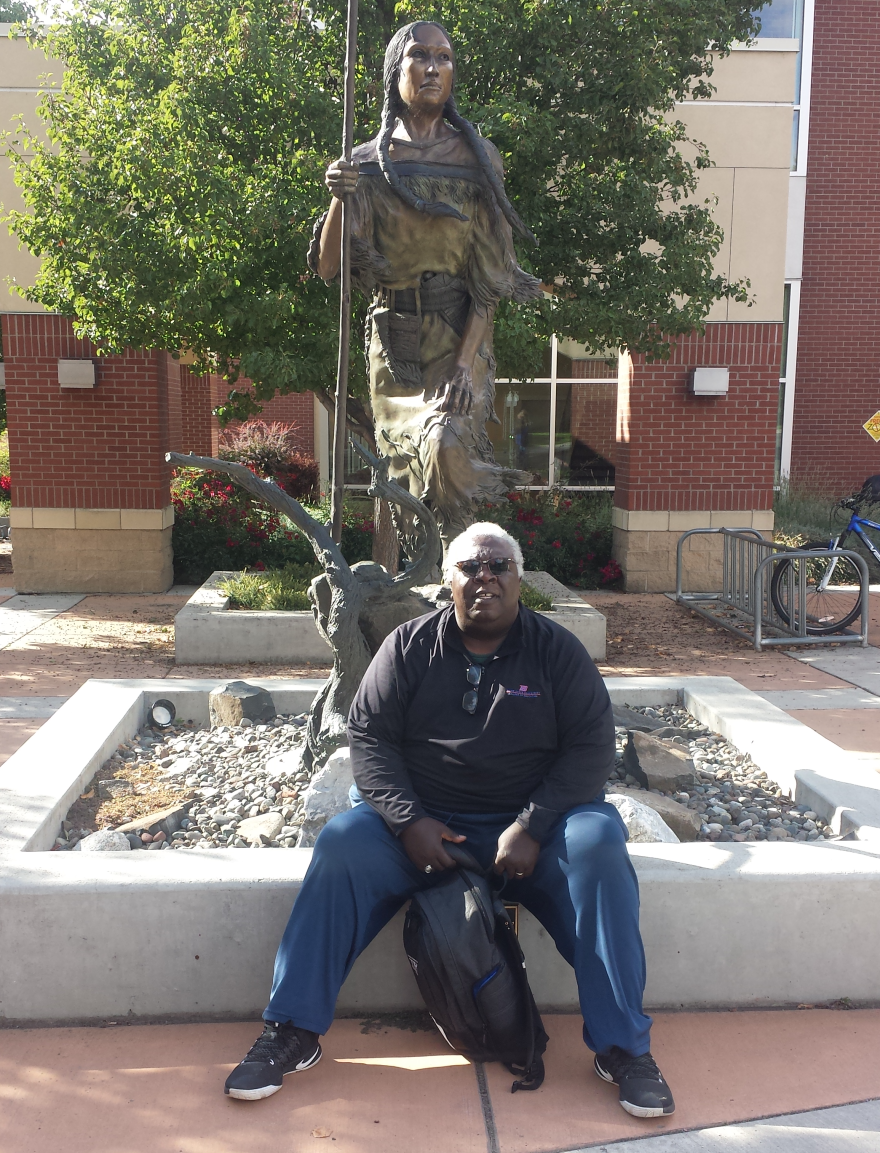My name is Keith Anderson. I work for the TRIO Program at Boise State as an educational specialist.
The TRIO Program is a government program which works with at-risk kids. I remember the day I was asked to be in the TRIO program and I told my ninth grade counselor I wasn't interested. She called my mom while I was standing there and my mom put me on the phone. Next thing you know, I was in the program.
I have a unique perspective, having been in the program and having been as poor, if not poorer than most of the students I worked with. I work with low-income kids at different schools. I go to Parma, Wylder and Horseshoe Bend and I work with both the middle school and high school. My job is to inform them about college, inform them about the different programs in college, help them understand that college is possible if that's what they want.
Our program, because we're in Idaho, we're predominantly white. We have a lot of Hispanic students, very few black students. But I get to show white students at all my schools that maybe black people aren't what you see on TV. It’s about more than getting people to college, it's about, OK, what else can I teach these students besides going to college? And that is, "Here's how to be a complete human being." You learn to deal with people who don't look like you. People don't think like you. People don't act like you. That's what I do. My normal day is talking to them about college and then when I'm done talking to them about college, I talk to them about life.
There are difficulties in every place. Idaho may be a little bit whiter than most states, but like I always tell people, show me a state that doesn't have racism and I’ll move there.
"Racism was something that was done on purpose. So therefore, it has to be undone on purpose."
I'm from California. I got into football because I was getting into trouble and they told me there's a place I could go with people and it'd be OK. So, I fell in love with football and luckily enough, I was good enough to earn a football scholarship to Boise State University back in 1977 when the turf was green. And I’ve been here ever since.

I remember one of the first nights I visited Boise on my recruiting trip. I was looking out one of the windows downtown and one of the boosters asked me if I could see myself here. And I said, yeah, I think I could see myself here. I knew there was a very small black population and I thought there was room for teaching here.
People don't like to talk about racism and not only here in Idaho but, apparently if you look outside all over the country, no one really wants to talk about it. You have to move from racist to nonracist to antiracist. People who are nonracist, they have to learn, they have to make that jump to being antiracist. We need people who want to be antiracist, who want to do away with racism, who will put their feelings to into action. And that's the only way, because racism was something that was done on purpose. So therefore, it has to be undone on purpose.
You're not going to come out here and be Mother Teresa or Gandhi or Cesar Chavez or Martin Luther King. Just try to change your world, deal with the people in your house, deal with the people in your neighborhood, your own relatives. Start there. And then it won’t be such a daunting task.
Copyright 2020 Boise State Public Radio
We Are Idaho features Idahoans from all walks of life telling their stories of living here in their own words.



